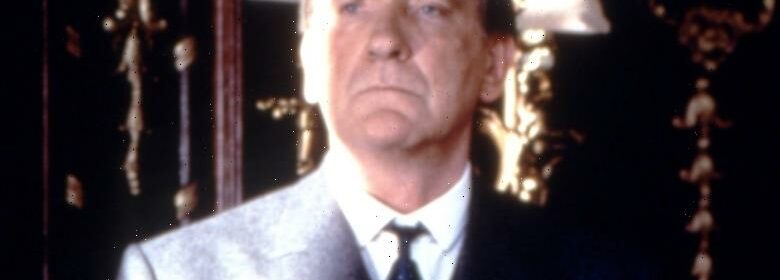David Warner, ‘Titanic,’ ‘A Christmas Carol,’ and Sam Peckinpah Alum, Dead at 80

David Warner, one of the most versatile character actors of the past 60 years, is dead at 80. The British performer could play sickly sweet, side-splitting comedy, or dastardly villain with the skill that made almost every movie he was in better. And there were a lot of them: he appeared in over 220.
Cinephiles might first recognize him for his work with Sam Peckinpah, as the horny preacher who “comforts” widows in “The Ballad of Cable Hogue,” as the drunken reprobate Henry Niles in “Straw Dogs” (for which he was uncredited, despite it being a major part, as the insurance company refused to cover him, as he had a broken leg), and as a Nazi in “Cross of Iron.” He also has an astonishing scene in Richard Donner’s “The Omen,” in which he’s decapitated by a falling piece of sheet glass — the first time a beheading was conveyed so graphically in a Hollywood studio film.
But to more casual moviegoers all around the world he will forever be Billy Zane’s gunsel Lovejoy in “Titanic.” And that was really his gift: to be distinctive and arresting enough to make an impression in anything he starred, including the biggest movie spectacle of all time. In a movie full of stirring images and iconic lines, just the sight of him letting a bullet roll down the side of a table to show how the ship was listing made its own impact, followed by the immortal line: “You know, I do believe this ship may sink.”
Warner died Sunday at Denville Hall, a nursing home for entertainment industry veterans in London. He had been suffering from terminal cancer. In a statement to BBC News, his family said: “Over the past 18 months he approached his diagnosis with a characteristic grace and dignity. He will be missed hugely by us, his family and friends, and remembered as a kind-hearted, generous and compassionate man, partner and father whose legacy of extraordinary work has touched the lives of so many over the years. We are heartbroken.”
The range of roles that Warner could play was stunning: he was the best-ever Jack the Ripper in 1979’s “Time After Time,” Evil in “Time Bandits,” and the ruthless digital enforcer Sark in “TRON” — villains were a specialty for him ever since he played the loathsome Blifil in arguably his breakout, the 1963 Best Picture winner “Tom Jones.” But he could also be deeply touching. For this writer’s money, he’s the definitive Bob Cratchit.
He played the heartfelt Dickens role in 1984’s peerless CBS adaptation of “A Christmas Carol,” opposite his “Tom Jones” co-star Susannah York as his wife Martha. George C. Scott played Scrooge, and seeing Warner endure the humiliation of Scrooge explain the purpose of clothing to him, your heart can’t help but ache: “These are garments, Mr. Cratchit. Garments were invented by the human race as protection against the cold. Once purchased, they may be used indefinitely for the purpose for which they were intended. Coal burns. Coal is momentary and coal is costly. There will be no more coal burnt in this office today. … Now please get back to work before I am forced to conclude that your services are no longer required.”
More nerdy film fans know him as an actor willing to make an impression under pounds of prosthetics: Warner played both a Cardassian villain on “Star Trek: The Next Generation” (the guy who’s torturing Picard into saying that there are five lights when there are only four) and the sympathetic Klingon Chancellor Gorkon in “Star Trek VI: The Undiscovered” country.
With all that, you might think he was fearless, but Warner stayed off the stage for three decades due to stage fright until he summoned up the courage to appear in the 2001 Broadway revival of George Bernard Shaw’s “Major Barbara.”
Warner is survived by his son — and a body of work that will forever endure.
Source: Read Full Article